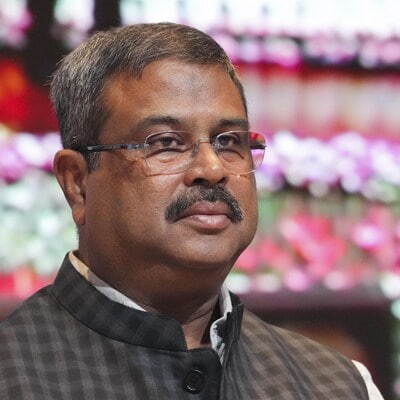“NEP is not just a policy, but a philosophical model that can be adapted by all emerging economies,” the education minister added. (Photo: PTI)
Education is a powerful catalyst for sustainable development and addressing common global challenges, and India’s new education policy is a philosophical model that can be adapted by all emerging economies, Union Education Minister Dharmednra Pradhan said on Saturday.
Pradhan made the above statement in his address at the third Voice of the Global South Summit. Pradhan and education ministers from other countries in the Global South deliberated on how to address education priorities and leverage collective strengths to transform education systems and build a more resilient, prosperous and sustainable future through quality education.
“Education is a powerful catalyst for sustainable development and for addressing common global challenges. Education is crucial not only for developing skills, but also for talent, innovation and building resilient communities,” Pradhan said.
He noted that India’s new National Education Policy (NEP) is bringing about a paradigm shift in the country’s learning landscape.
“NEP-2020 is bringing about a paradigm shift in the educational landscape of India. NEP aims to develop India’s youth as global citizens and also position India as a 21st century knowledge economy.
“NEP is not just a policy, but a philosophical model that can be adapted by all emerging economies,” the education minister added.
Pradhan said that like ‘Vishwa Bandhu’, India is dedicated to being a reliable partner in driving human resource development.
“The Global South Centre of Excellence, ‘Dakshin’, focuses on research relevant to countries in the Global South. We want to open doors to more opportunities for higher education through programmes like Study in India and Global South Scholarships,” he said.
“I am confident that our South-South cooperation will continue to grow to foster innovation, equalize educational opportunities, prepare our youth for the future, advance development goals, transform our respective countries into knowledge-based societies and leave no one behind,” he added.
(Only the headline and image of this report may have been reworked by Business Standard staff; the rest of the content is auto-generated from a syndicated feed.)
First published: August 17, 2024 | 20:57 IS
Disclaimer:
The information contained in this post is for general information purposes only. We make no representations or warranties of any kind, express or implied, about the completeness, accuracy, reliability, suitability or availability with respect to the website or the information, products, services, or related graphics contained on the post for any purpose.
We respect the intellectual property rights of content creators. If you are the owner of any material featured on our website and have concerns about its use, please contact us. We are committed to addressing any copyright issues promptly and will remove any material within 2 days of receiving a request from the rightful owner.

